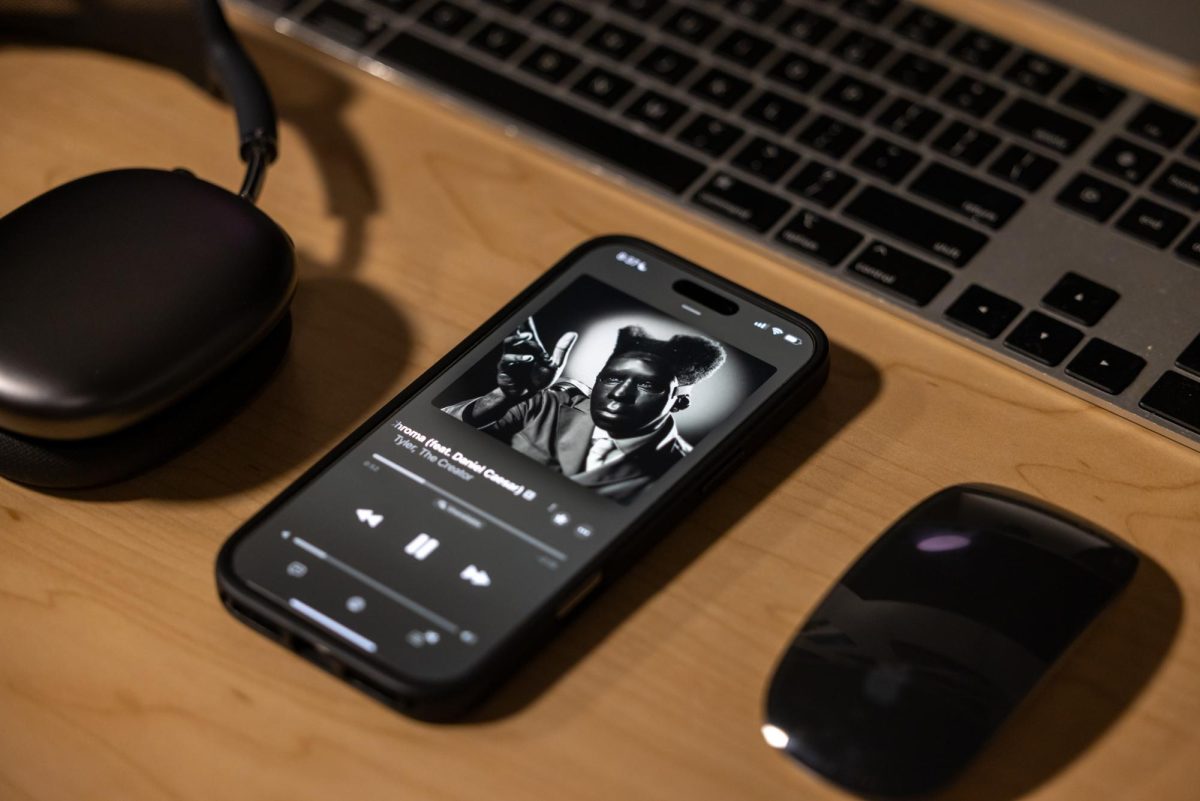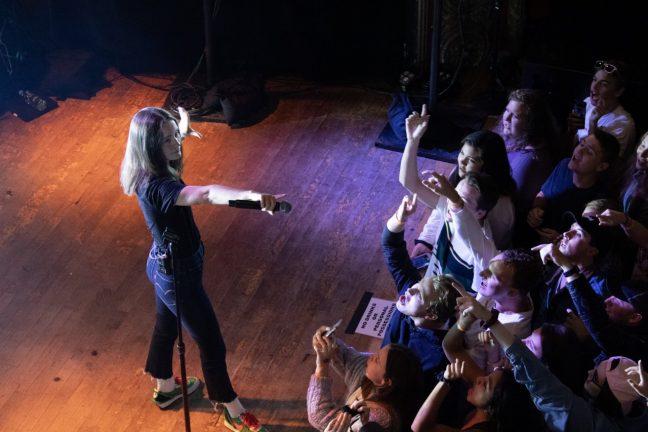 Photo courtesy of Smiley Gatmouth
Photo courtesy of Smiley GatmouthThis summer, Jay Z released what might have been the most corporate hip-hop album of all time. On July 4 at 12:01 a.m., his mediocre Magna Carta… Holy Grail was released to one million Samsung Galaxy users for free. In one of the largest collaborations between artist and corporation, Jay Z cashed in on a well-over-seven-figures check, created an album glorifying a life of riches and, because of his stronghold grip on popular culture, inextricably fused hip-hop with unabashed consumerism.
In another album released earlier this year, Smiley Gatmouth did the complete opposite. Rejection of major labels, sponsorships and corporate influence has always been a central tenet of underground hip-hop, but oftentimes these violent anti-corporate attitudes act as scapegoats for lack of talent or broader mainstream appeal. With Smiley Gatmouth, this is not the case. Gatmouth’s lyrics are some of the best, most complex and introspective I’ve heard this year. They’re also some of the best hip-hop lyrics I’ve ever heard – ever.
Gatmouth is a Denver rapper currently attending the University of Wisconsin, where he performs through the First Wave Hip Hop and Urban Arts Learning Community, an artistic program that provides full-tuition scholarships to fledgling hip-hop artists. On his first mixtape, Ill Intentions, he incorporates voice mail messages from corporate music producers who guarantee that Gatmouth will be a rich man so long as he drops the introspective lyrics and focuses on more traditional, repeated 16-bar/verse structures. Gatmouth doesn’t oblige. His opposition to sponsorship is fervent, and this theme becomes immediately evident in the first track when he raps, “I’m a rowboat rowing in an open ocean / And I’m hoping to blow up with no promotion / But, oh, these explosions are so slow motion.”
On the mind-blowing track “Sell Out,” Gatmouth provides a biting satire of the “can’t-beat-’em-join-’em” mentality many respected rappers have taken throughout the history of hip-hop. His gradual transition from poetic, underground rapper to disrespected mainstream icon comes about so gradually it’s humorously clever: “I’m so hip hop, I Crip Walk in flip-flops / I’m a mix of Rick Ross and crisscrossed with a little Kid Rock / I’m a gangbanger, nah, scratch that, I’m a backpacker / Rap is just my stepping stone to becoming a bad actor / I’m a crack rapper, actually sponsored by Arm and Hammer / I fuck with some proper grammar, make government propaganda.” As the song draws to a close, Gatmouth concedes, “And my fans hate me, they say, ‘We liked you better before you were mainstream’ / Motherfucker, so did I, somebody shoulda paid me…So y’all can go and be a bunch of hip-hop heads / Pressing free download until hip-hop’s dead.”
However, Gatmouth’s aggressive rejection of mainstream industrial dynamics isn’t the only theme on the album. Rather, the alienating prospect of a million-dollar record deal acts as a foil to the very real demons of his past. He raps about growing up in a mobile home and about calculating the total number of kids who graduated from his high school class – two: him and his brother. On the horribly depressing “Clock Punchers,” he uses poetry to paint an abstract portrait of his neighborhood’s drug problems: “Some saw themselves as chemical collision courses / Smoked their prayers and snorted higher forces / Chained to a planet that was chained to the sun / Smiled a toothy smile with traces of cocaine in their gums.” He goes on to list names of the kids he went to school with and the fucked-up shit they experienced growing up: “Jessica got raped a lot, in and out of foster care / Until she found a family that made her think that God was there / Thank God, we said, she finally found a reason to keep breathing / Three years later killed herself, guess that she was trying to meet him / Brad said, ‘I’m not gonna wind up like dad’ / And that’s exactly what he did, and that’s the reason he’s so mad / And that’s why he beats his kids and why his kids all fucking hate him / And his wife just keeps on praying waiting for someone to save ’em.”
Gatmouth spits these lines with a fast-paced, high-pitched flow. His imagery and lyrics are dense and introspective, but easily understandable and engrossing. He regularly sounds on the verge of tears as he spreads his breaths out across long, intricate lines, only to finish most thoughts gasping for air. This technique conveys a desperate tone that compliments the oftentimes horrific and personal imagery that Gatmouth chooses to share with his listeners.
One of the more poignant moments on the album comes in the title track – a collaboration between Gatmouth and John “Vietnam” Nguy??n, a First Wave scholar who died in 2012 at the age of 19. The track was originally featured as the first song on Nguy??n’s 2012 mixtape, Humble and Low Vol. 1, but the track fits perfectly in place with the themes of Ill Intentions. Gatmouth and Nguy??n nimbly trade lines and continue pushing Gatmouth’s anti-corporate agenda with the final lines, “‘Cause I don’t give a fuck if yo CD blows / If yo CD blows, thank the CEOs.” Jay Z could learn a thing or two from these guys.
In 13 tracks, Smiley Gatmouth has revealed more about his life and insecurities than most people do in the first two years of romantic relationships or intimate friendships. While Gatmouth’s fear of the mainstream is fervent and understandable, everyone who appreciates hip-hop, poetry and art needs to hear the music of this beautiful, dark, twisted reality.
5 out of 5 stars



















